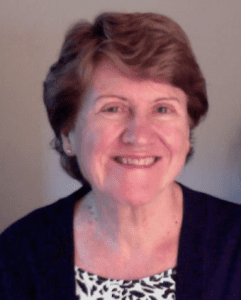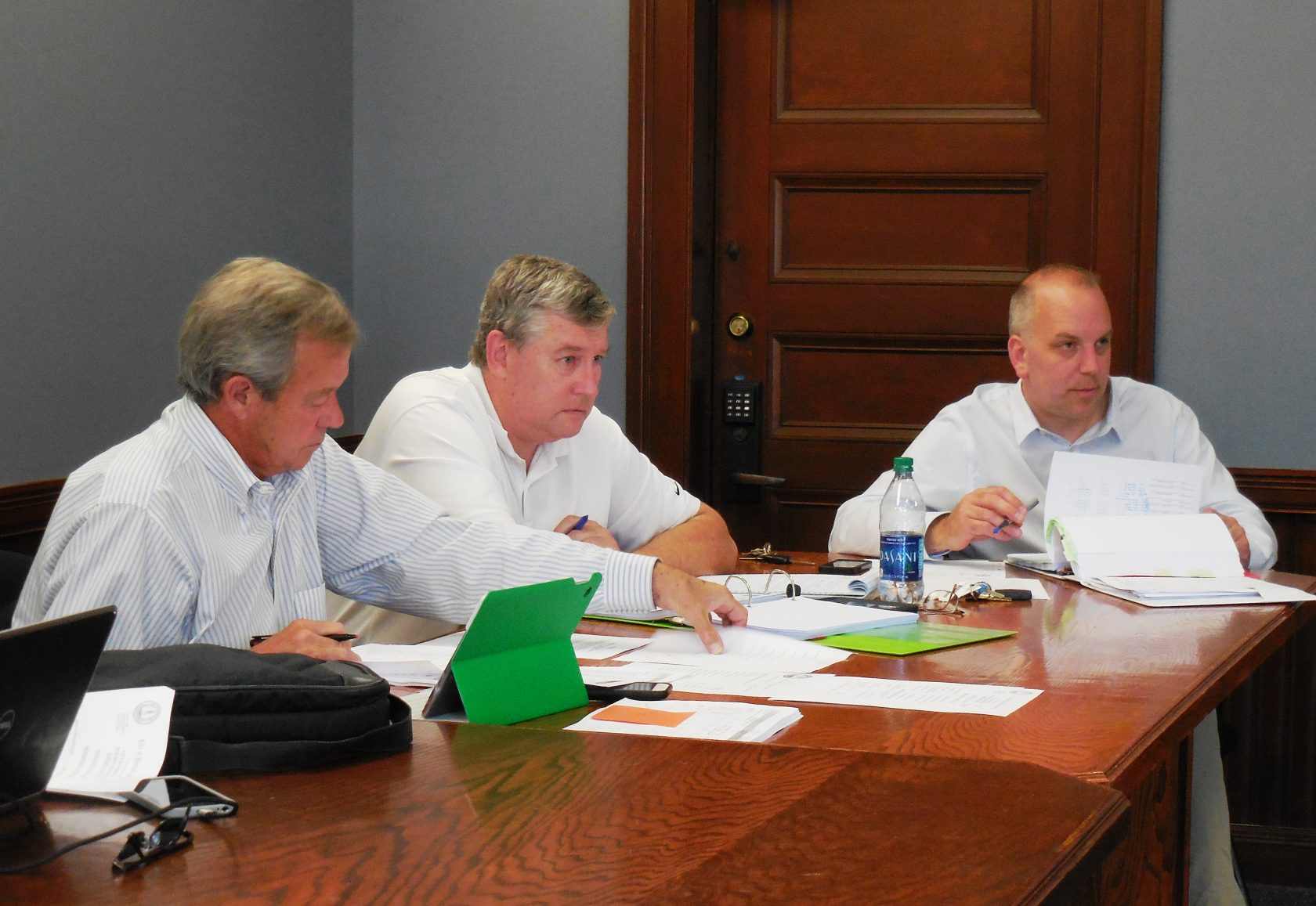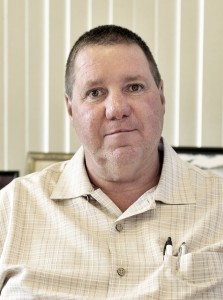WESTFIELD – Wednesday’s budget hearings found potential for more revenue for the city in the Landfill, Department of Public Works, Building Inspection and Westfield Airport reports.
Ward 5 Councilor Robert A. Paul, Sr. led the hearing, thanking At-Large Councilors David Flaherty and Matthew T. VanHeynigen for their
work in his absence. Paul also thanked Councilors Mary O’Connell, Mary Ann Babinski, Andrew K. Surprise and Cindy C. Harris for their attendance at the hearing. Matthew Roman was also present, representing the public.
Joseph Rouse, Director of Public Health came back for a second time to give a report on the Landfill budget. Rouse said the good news was that the city did well in the single-stream recycling, but the bad news was in the labor costs. He said recycling went up 35%, but trash hauling didn’t go down. However, the city avoided being fined for having recycling contaminants in the waste stream.
“We’ve been successful from a sustainability perspective, but from a cost perspective, no change,” Paul said.
Rouse said the city is back to looking at third party operation of the transfer station, to see if that would be the most cost effective way to run it. He said there are already interested parties. A request for proposal (RFP) is being prepared now.
When asked what that would mean, Rouse said the city could cross off the $700,000 in trash hauling fees, plus receive income from third party pickup. He said the market would support that with an expansion that the city is unable to do. He said the minimum requirement would be five staff (now two), plus $5 to $7 million dollars for a new building. Rouse said both West Springfield and Holyoke have privatized trash pickup.
During his presentation, Superintendent of Public Works David Billips also spoke about privatization. He said the budget of $900,000 for waste collection hasn’t changed much. Billips said if the city does not privatize, it will need $1 million in trash collection vehicles. He said they are preparing an RFP to address both.
“What would be the change in this budget with privatization,” asked Paul.
“This budget won’t exist anymore. We would be completely out of the trash business,” Billips responded. He said his best guess for a return on the RFP would be in September.
Councilor Harris commented that this was not yet decided, to which Paul added that privatizing trash was a discussion, not a decision.
Other potential for revenue was also revealed in the DPW presentation. Paul praised Billips and his department for the “fantastic” work they have been doing in the city, including work they hadn’t done before.
Billips said he had put more money into construction in the budget, but asked for $450,000 and only got $300,000. He said some of the work they have done on roads, curbs and sidewalks has proved the department could do it cheaper than an outside contractor.
Flaherty asked why City Engineer Mark Cressotti had money in his budget for similar projects. Billips responded that the engineer’s budget paid for mostly outside contractors.
Paul said there is an opportunity to use some of the funding in the engineering budget to have Billips and his team fill some of the gaps for less.
“What Dave (Billips) has done with his team is show that they can do what we used to call complex road work,” Paul said. He said the city could also be more effective with Chapter 90 money, which is separate, by using the capability the DPW has demonstrated.
“That’s been my argument for years,” Billips said. He added that as an example his department would like to do the entire Orange Street.
“Excise tax should be going to roads and bridges, not into free cash. This department should be getting their share of that money. We should also get a lot stricter with sub-contractors,” commented resident Matthew Roman.
Regarding the Parks and Recreation department, Billips revealed a similar trend.
“We can’t keep being short four guys, one of them a tree climber. We have one tree guy. We’re paying $50,000 outside to fertilize our fields because we don’t have a guy to do it,” Billips said, adding, “There’s as much opportunity here to do the work ourselves and save money.”
“Can you guys fix the fountains? There are three fountains. Mark (Cressotti) is spending $45,000 on contractors,” Flaherty said.
“We could probably do it for less,” Billips responded.
“Perhaps some of our engineers can think about how much it will cost to maintain those things, and design them more simply,” commented Harris.
Building Inspector Clarissa Lisee agreed with the councilors that more revenue could be generated by her department.
“We’re a self-sustaining department,” said Lisee, who began in the position on May 9. She said commercial properties are charged by the square foot, and residents are charged a flat fee, both extremely low compared to other communities. She said there is a lot of “wiggle room” in both, and planned to sit down with the other inspectors to do a comparison chart with surrounding communities.
Lisee also reported that Tom Broga, the plumbing inspector, is retiring the first week of July. A new plumbing inspector has been hired, and will be presented to the City Council for confirmation at the June 30 meeting, and for a vote at the July 7 meeting.
She said the needs in her department include “a huge need” for filing cabinets and storage room.
“If there was a fire, we’d lose the history,” she said, adding that she would like to have a private company come in and scan in the plans electronically. “We have to keep everything for the life of the building,” Lisee said.
Paul asked Lisee to prepare a fees comparison chart to present to the City Council for the budget hearing next week.
Westfield Airport Manager Brian P. Barnes also detailed some revenue generating ideas. He said there will be a big airshow in 2017, the first since 2010, and he is looking to get corporate sponsors, with a goal of $100,000.
He said new businesses are also coming in, including Medevac and Rectrix, which is looking to invest in the airport. He said he would also like to attract corporate jets as tenants. Barnes recently presented a development plan for the Airport to the City Council.
“We need the Mayor’s development offices to get in line with the Airport Commission and you,” Paul said.
“I’m going to throw up a yellow flag. Before we start talking about developing up there, let’s think about the people who live there,” said Councilor Mary Ann Babinski. She also spoke about the aquifer at Barnes that needs protection. “I just want to make sure that’s understood,” she added.
Paul said the Finance Committee will put together a frame work of the findings from the hearing, and present it to the City Council.
“The Councilors as a body and individually will have their opinions and proposals. Then we’ll vote,” Paul said.
Budget hearings continue Thursday evening with the police and fire departments and IT meeting in Room 201 beginning at 5:30 p.m.
On Monday, June 27, a public hearing will be held on the budget at 6 p.m. in Council Chambers. On Tuesday, the final Finance Committee meeting on the budget will be held in Room 315 at 6 p.m. Wednesday, June 29, there will be a special meeting and budget workshop with the whole City Council at 7 p.m. in Council Chambers, and on Thursday, June 30, the City Council will vote on the passage of the budget, also at 7 p.m. in Council Chambers.




